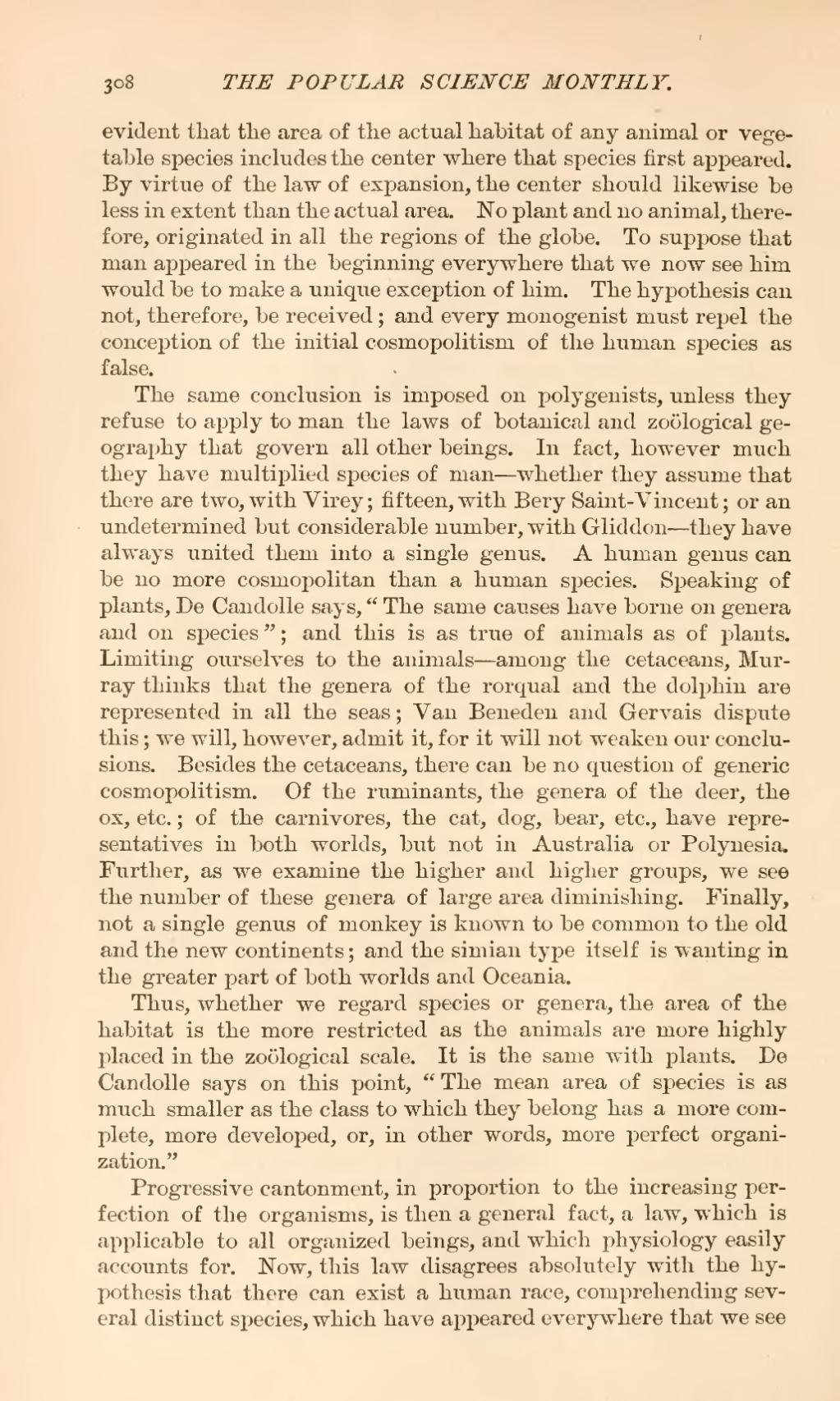evident that the area of the actual habitat of any animal or vegetable species includes the center where that species first appeared. By virtue of the law of expansion, the center should likewise be less in extent than the actual area. No plant and no animal, therefore, originated in all the regions of the globe. To suppose that man appeared in the beginning everywhere that we now see him would be to make a unique exception of him. The hypothesis can not, therefore, be received; and every monogenist must repel the conception of the initial cosmopolitism of the human species as false.
The same conclusion is imposed on polygenists, unless they refuse to apply to man the laws of botanical and zoölogical geography that govern all other beings. In fact, however much they have multiplied species of man—whether they assume that there are two, with Virey; fifteen, with Bery Saint-Vincent; or an undetermined but considerable number, with Gliddon—they have always united them into a single genus. A human genus can be no more cosmopolitan than a human species. Speaking of plants, De Candolle says, "The same causes have borne on genera and on species"; and this is as true of animals as of plants. Limiting ourselves to the animals—among the cetaceans, Murray thinks that the genera of the rorqual and the dolphin are represented in all the seas; Van Beneden and Gervais dispute this; we will, however, admit it, for it will not weaken our conclusions. Besides the cetaceans, there can be no question of generic cosmopolitism. Of the ruminants, the genera of the deer, the ox, etc.; of the carnivores, the cat, dog, bear, etc., have representatives in both worlds, but not in Australia or Polynesia. Further, as we examine the higher and higher groups, we see the number of these genera of large area diminishing. Finally, not a single genus of monkey is known to be common to the old and the new continents; and the simian type itself is wanting in the greater part of both worlds and Oceania.
Thus, whether we regard species or genera, the area of the habitat is the more restricted as the animals are more highly placed in the zoölogical scale. It is the same with plants. De Candolle says on this point, "The mean area of species is as much smaller as the class to which they belong has a more complete, more developed, or, in other words, more perfect organization."
Progressive cantonment, in proportion to the increasing perfection of the organisms, is then a general fact, a law, which is applicable to all organized beings, and which physiology easily accounts for. Now, this law disagrees absolutely with the hypothesis that there can exist a human race, comprehending several distinct species, which have appeared everywhere that we see
